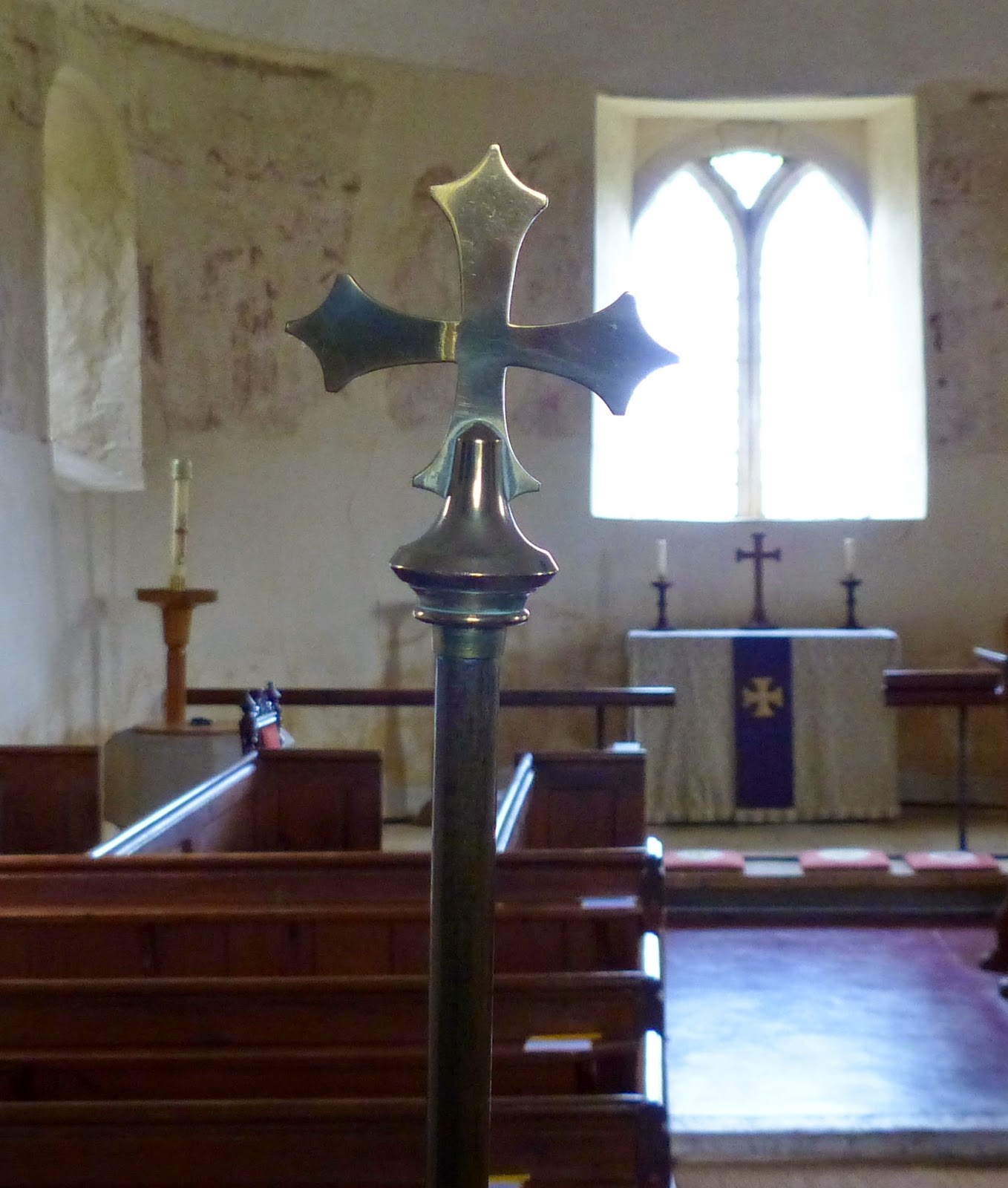I decided to take a look at the story of the young man lying in the grave at the wee church I visited the other day. Like many of such tales it is sad indeed.
Gunner Frank Raven, artillery men are always called 'gunner' not private, was born in Great Tey in 1896 to a ploughman working on the farms round about. By 1901 there were nine in the family and he was the fourth brother out of six. His sister I suspect would still be the house bully, they usually are! Each one was born in Great or Little Tey indicating how dad moved from farm to farm according to the possibility of work. Ploughmen however were highly skilled and better paid. The eldest brother, at twenty years of age, was a pork butcher and by 1911 all the working boys were farm hands. By then the sister and elder brother had gone, not unlikely married, possibly however sickness was rife before the NHS.
I have no idea what sort of dwelling they rented but I suggest an outside loo, a pump or well for water and crowded rooms, par for the course at the time of course. Some villages retain their pump making it a visitor attraction. Occasionally I notice them removed into peoples gardens as ornaments. Life on the land would be run according to the light, and summer would mean long days of hard back breaking work, especially later when harvest had arrived. No transport bar a horse if you were lucky, or possibly a chance ride on the cart on the way home.
The census of 1911 shows the family at Broad Green, Great Tey, not far down the road where he worked on the farms. Five sons lived here with their parents those not at school were on the farm. Not much else available I suspect or was there no desire to move away I wonder?
War left its mark on every part of the kingdom. Agricultural workers often saw this as a chance of escape from a hard, dull life, especially if foreign travel was involved. On November 1915 Frank signed the attestation form pledging to serve for the duration of the war. He travelled to Colchester, a few miles down the road, possibly walking all the way, and enlisted in the Royal Garrison Artillery Regiment. Did his brothers go with him or had they already enlisted? I do not have time to look. He was by then 20 years of age, five foot six in height and I suspect very fit.
Within six days hew as posted to Great Yarmouth for basic training and by the 13th of December with what appears to be the 13th Company. He remained there, based I guess at Yarmouth defending the coast against enemy shipping and Zeppelins passing over. That are was on their main route into the hinterland.
I suspect Frank had never travelled far in his life. Possibly into Colchester, maybe Braintree, however I doubt he would have been to Great Yarmouth before. Certainly he would never had considered travelling to Cricklewood where he was posted to the 6th AA Company on the 1st of May 1916. This anti-aircraft company were part of the answer to Zeppelins and Gotha Bombers that upset the people of London so. Faded writing makes things unclear but he appears to be there until September when he possibly developed a sickness. This was indeed serious. So serious that he was discharged from the army on medical grounds on the 8th of February 1917. This was a time when men were desperately required and only serious illness or wounds would enable such discharge. The cause was a form of cancer and on the 28th March he died. He was 21 years of age.
His address is given as Houchins Farm, next door to the 1911 address. farm workers, especially good ones, did not have to travel far for work even if the wages were poor. It comes to mind that eight shillings a week might have been the wage while factories nearby paid twelve. Franks character is described as 'good' by his officer so he no doubt was a reliable worker. The army rewarded the deceased with a war gratuity (£4 in Franks case) and a medal to remember him by.
I don't think we should forget him, do you?
.






















.jpg)












































